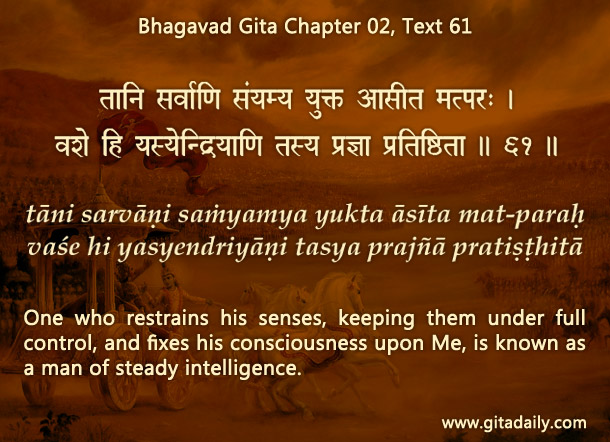Does devotion result in renunciation? – The bhakti tradition features sterling examples of great saints who became so devoted to Krishna as to completely renounce the world. Simultaneously, bhakti-yoga is celebrated for its inclusivity. Unlike other paths that require a high level of renunciation, bhakti-yoga provides pathways for a wide range of spiritual aspirants: those who are devotionally inclined but not yet materially detached; those who are devotionally surrendered but are also inclined and equipped to engage actively in the world for raising human consciousness; and those who are devotionally surrendered but aren’t psychophysically oriented for the renounced order.
Does this inclusivity imply that devotion and renunciation are unrelated? No, devotion does lead to renunciation; fixing our mind on Krishna grants a higher taste that makes renunciation sustainable (Bhagavad-gita 02.61). But do devotion and renunciation grow in a linear proportion? Not necessarily. Both devotion and renunciation are matters of the heart that can’t be precisely predicted. We all have our particular conditionings; we are at our individual stages in our spiritual evolution; and ultimately we all can grow devotionally only at the pace that Krishna decides for us.
Given the unpredictable relationship between devotion and renunciation, how can we apply this knowledge in our devotional journey? When seeking association, we needn’t reduce anyone’s devotional stature to their level of renunciation; instead, we can cherish the association of whoever inspires us to grow devotionally. When practicing our own bhakti, we needn’t crave for more renunciation or lament our less renunciation; instead, we can strive to enthusiastically serve Krishna, using whatever resources, including renunciation, that we currently have. By such focused bhakti-yoga practice, our renunciation will grow if it is meant to grow. But more importantly, our devotion will definitely grow, and that will take us to our Lord, which is life’s ultimate perfection.
One-sentence summary:
If renunciation results from devotion, use it to practice bhakti more undistractedly; if renunciation doesn’t result, still continue practicing bhakti.
Think it over:
- How has the bhakti tradition been inclusive?
- How does bhakti lead to renunciation?
- How can we best balance our pursuit of renunciation and our pursuit of devotion?
***
02.61: One who restrains his senses, keeping them under full control, and fixes his consciousness upon Me, is known as a man of steady intelligence.
To know more about this verse, please click on the image
Explanation of article:
Podcast:


Really an eye-opener article prji. You have explained it so well. Thank you very much.
Happy to be of service.
Devotion is the way to understand GOD
Prabhuji your Gita Daily lectures inspires me a lot. Thanks for making this.
Humbled to know that you find Gita daily helpful